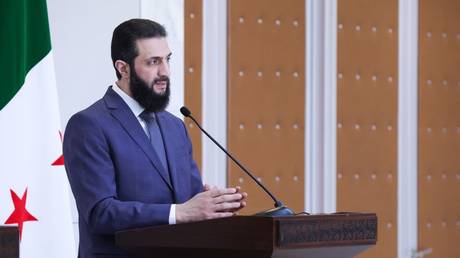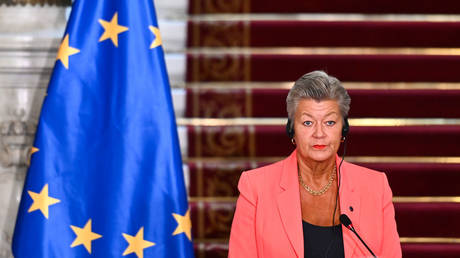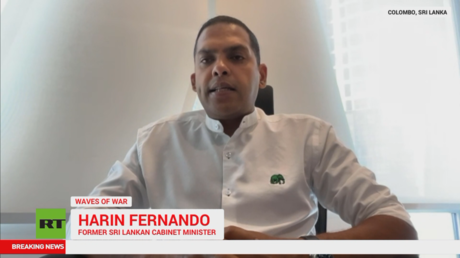
Ahmed al-Sharaa has said the country needs time to establish a political system and rebuild its infrastructure
Syria’s transitional president, Ahmed al-Sharaa, has announced that elections will not be held for up to five years, citing the need to rebuild the country’s infrastructure and establish a functioning political system.
Al-Sharaa, also known as Abu Mohammad al-Joulani, took power in December 2024 after jihadist factions led by Hayat Tahrir al-Sham (HTS) overthrew Bashar Assad’s government. Assad, who had ruled Syria since 2000, fled to Russia, where he and his family were granted asylum. The new authorities suspended the constitution and announced a transition period under HTS leadership.
Discussing the timeline for elections in an interview with Syria TV on Monday, Al-Sharaa said that such a step would not be feasible in the short term due to structural and logistical obstacles.
“I estimate that the period will be between four to five years until elections because there is a need for a vast infrastructure, and this infrastructure needs to be re-established and establishing it needs time,” he told Syria TV, as quoted by Reuters. He also stated that the transitional government would adhere to international norms before elections are held.
Syria’s new administration previously said it would draft a new constitution and restructure state institutions. Al-Sharaa has said a national conference will be held to address governance issues and form a legislative council to oversee reforms. HTS leaders have also stated that armed factions will be absorbed into state security forces. However, no specific timeline has been given for these measures.
The Western media has largely portrayed Al-Sharaa as a “moderate” Islamist leader, contrasting his rule with Assad’s secular government. However, his background as a jihadist commander has raised concerns about Syria’s future leadership. HTS emerged from Al-Qaeda’s Syrian affiliate and remains under international sanctions.
The US has been working to remove HTS from its terrorist designation list, with officials reportedly considering such a step as part of efforts to engage with Syria’s new leadership. Washington has not officially recognized Al-Sharaa’s government but has signaled an openness to dialogue with HTS officials regarding Syria’s political transition.
The fall of Assad’s government has triggered mixed reactions. Russia and Iran, longtime allies of Assad, initially condemned the takeover, describing it as an armed coup by extremist factions. Meanwhile, Türkiye and several Gulf states have signaled an openness to cautious engagement with the new authorities.
Nevertheless, Moscow has since maintained communication with Syria’s new leadership. Kremlin spokesman Dmitry Peskov has stated that Russia “cannot avoid contacting those who control the situation on the ground.” A Russian delegation also held talks with the new authorities in Damascus last month, expressing a willingness to continue the historically stable relationship between the two countries.




